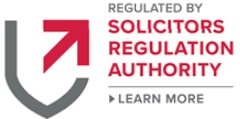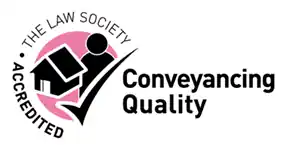How we can help
Drawing on years of experience in handling cases in which negligence is alleged, our specialist team of lawyers can help you to claim compensation for a range of professional errors or omissions made by a conveyancer, including where they have:
- failed to carry out appropriate property searches, which means that you went ahead with a purchase in ignorance of issues that would have either
caused you to withdraw your offer to buy or else seek a price reduction; - failed to spot a problem with the title deeds to the property, which means that you do not own everything you thought you owned or that you have less
freedom to deal with the property than you were led to believe you would have; - failed to advise you that the property you were buying was leasehold as opposed to freehold, which means that the property is not 100 per cent yours
and that you have become saddled with a variety of annual charges common with leasehold properties that you did not anticipate or budget for; - failed to inform you of facts which may affect the value of the property or indeed result in property devaluation, such as ground water problems which
may mean that you are at increased risk of flooding and therefore face difficulties in obtaining insurance like other owners of flood risk properties; - failed to advise you properly on the terms of your mortgage, which means that you cannot rent the property out as you may have planned or use it for
any purpose other than as a private residential dwelling; - miscalculated the stamp duty land tax payable for the transaction, which means that you have either ended up paying over the odds or paying too
little which gives rise to the risk of a tax investigation and the imposition of a penalty charge and the need to pay accrued interest; or - failed to properly register your new ownership rights with the Land Registry, exposing you to the risk of problems as and when you decide to move
on.
Common issues
Issues that we frequently come across include:
- failing to note a disparity between what the seller’s paperwork says they own and what it appears from a physical inspection of the property is actually included within the erected boundary, suggesting either that some of the property has already been sold or else taken by someone else and therefore potentially no longer within the seller’s ownership due to the law of adverse possession;
- failing to note the existence of restrictive covenants which, for example, effectively prevent the property from being extended or redeveloped;
- failing to note the existence of a private or public right of way which runs across the property and may affect the use to which any undeveloped land may be put and which also raises privacy and security concerns;
- failing to spot that a property has been built or extended without planning permission and building regulations or building compliance approval and the issue of appropriate building compliance certificates;
- failing to advise on the need to commission specialist reports to reveal the existence of historical coal mines and shafts which may affect a property’s stability or to obtain an environmental report in an area suspected to be affected by certain environmental hazards;
- failing to recommend that indemnity insurance be obtained to provide cover for a potential problem revealed during the conveyancing process and which should had been highlighted as a matter of course;
- failing to pay off an existing mortgage on the date due, leading to the imposition of further unnecessary charges; and
- failing to notify the Land Registry of a change in ownership within the prescribed time period, resulting in someone else being able to lay claim to the property – such as the seller’s trustee in bankruptcy where they have been forced into insolvency since the sale took place.
Why come to us?
Our professional negligence lawyers understand how devastating it can be to find out that a property you own is affected by major problems, particularly where the property in question is your home or future retirement nest egg and where the issues that have arisen look as though they will be costly to resolve.
With this in mind, we have developed a professional services offering which enables us to support you during this difficult time and in a way that we hope will avoid putting you under any further pressure or additional stress.
Among the key features of this service offering are:
- a free initial consultation to discuss your concerns and your ideal outcome scenario;
- a range of funding options to make pursuing a claim with us affordable, including no win, no fee funding in appropriate cases;
- a comprehensive case review at the outset of the matter to ascertain what has happened, whether a claim for professional negligence may be possible and, if so, the approximate amount of compensation we estimate is likely to be due;
- access to a network of legal, financial and property experts who can be called upon to produce any reports needed to substantiate your claim; and
- a three staged approach to securing a good outcome, starting with direct negotiations with the conveyancer’s professional indemnity insurer, moving onto a formal mediation where this may be useful and then culminating in the instigation of legal proceedings but only where absolutely necessary.
In addition, we pledge to provide you with regular progress reports as your case moves through the claims process and to do so using clear and simple language which means that you always understand what is happening and the options available to you for bringing your case to an acceptable conclusion.
On top of that, we have a proven track record in achieving impressive results and within the shortest timeframe possible given your individual circumstances.
But you need to act fast in seeking our assistance as you generally only have six years from the date on which the alleged negligence took place in which to bring a claim, or three years from the date on which you could have reasonably known that negligence had occurred. There are situations in which these time limits may be extended, but they are few and far between and in any event are subject to what is known as a longstop date which means that no claim can be brought beyond 15 years from when the allegedly negligent act or omission happened.
What next?
For further information on professional negligence claims, please email us at enquiries@steplegal.co.uk or call us on 0800 195 6412 and ask to speak to a member of the professional negligence team.
Our lawyers are happy to help wherever you are based in the country and can even arrange for a home visit where you have mobility issues and live within reasonable travelling distance of our offices, and specifically where you live in Crewe, Nantwich, Northwich, Sandbach, Macclesfield, Stoke-on-Trent or Newcastle-under-Lyme.











